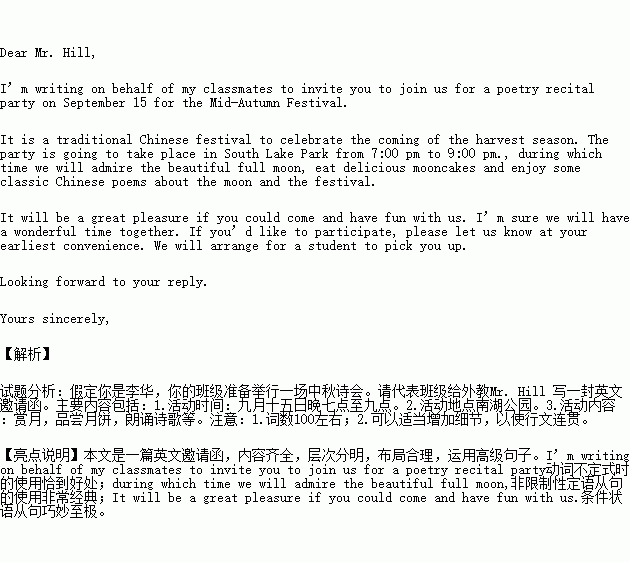题目内容
假定你是李华,你的班级准备举行一场中秋诗会。请代表班级给外教Mr. Hill 写一封英文邀请函。
主要内容包括:
1.活动时间:九月十五日晚七点至九点。
2.活动地点南湖公园。
3.活动内容:赏月,品尝月饼,朗诵诗歌等。
参考词汇:诗歌朗诵会:poetry recital party.南湖公园:South Lake Park.
注意:1.词数100左右;
2.可以适当增加细节,以使行文连贯;。
Dear Mr Hill,
____________________________________________________________________________
____________________________________________________________________________
____________________________________________________________________________
____________________________________________________________________________
____________________________________________________________________________
___________________________________________________________________________
____________________________________________________________________________
Yours,Li Hua

